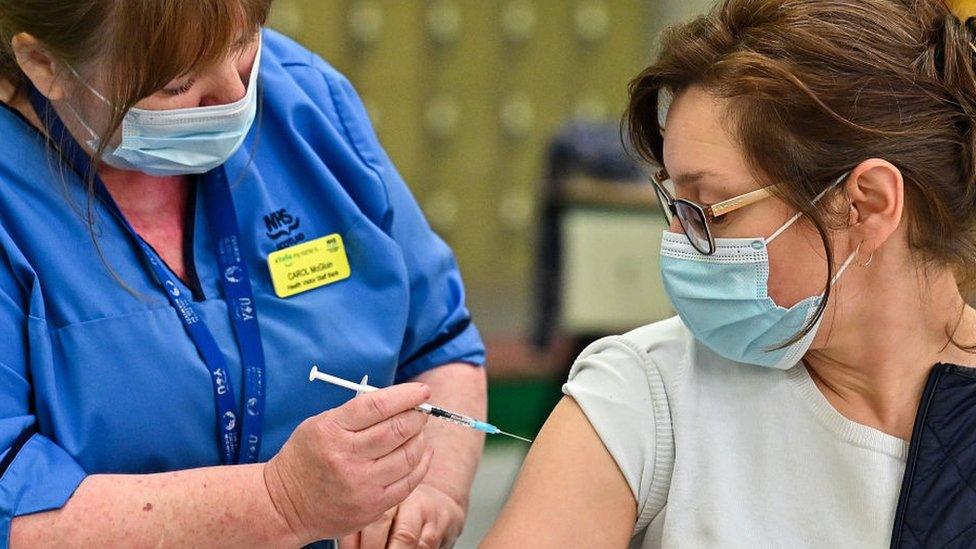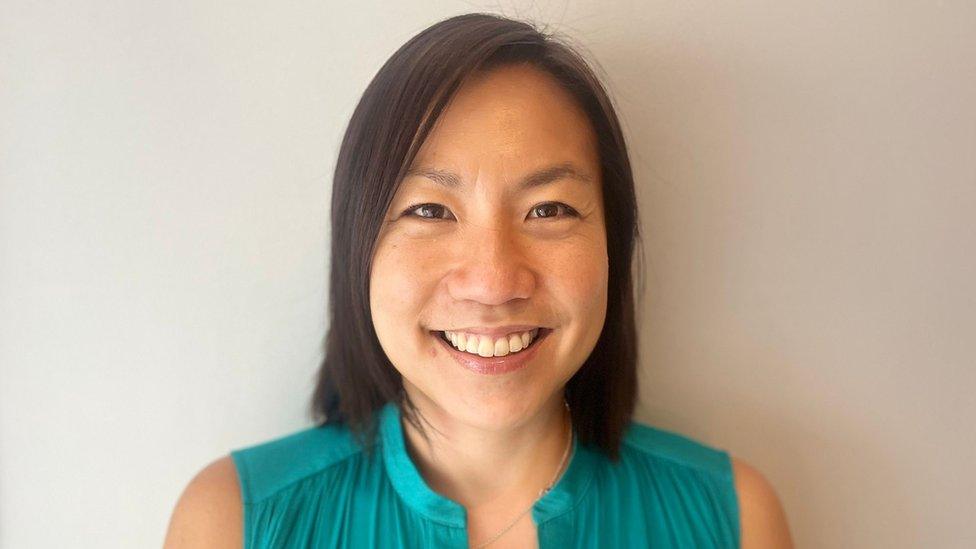Jason Leitch concerned about winter amid Covid upswing
- Published
'We are concerned about winter,' says Professor Jason Leitch.
Scotland's national clinical director has said he is concerned about winter amid a summer upswing in Covid cases.
Prof Jason Leitch also urged eligible people to get vaccinated when the programme starts next month.
He told BBC Scotland's The Sunday Show that 200 people were admitted to hospital with the virus last week.
Earlier this month an offshoot of Omicron, EG.5 - dubbed Eris - was classified by the World Health Organization as a variant of interest.
On Saturday the Daily Record newspaper, external highlighted a GP's concerns that Scotland was on the brink of another Covid crisis, due to rising infections and changes to testing for frontline NHS staff.
Asked about the story, which was based on a leaked email, Prof Leitch said: "There is upswing in cases. That's absolutely true.
"During June, July, August, hopefully into September, we do see quite a lot of variation but from a low level. But we are concerned about winter.
"All viruses like these, like the flu, RSV in kids, Covid in all ages, get worse as the temperatures change."
The national clinical director said he was expecting a "blip" which comes with the risk of increased hospitalisations and deaths.
But he urged the public to follow two "absolutely crucial" pieces of advice to prevent viruses from spreading.

Prof Leith said: "If you are called and if you are eligible get yourself vaccinated for both or one of these diseases, whichever you are eligible for, flu and Covid.
"And, this is the hard cultural thing in a working and an educating environment like we have in Scotland, if you are not well don't mix with other people. So, stay at home."
On Sunday two wards at Western Isles Hospital in Stornoway re-introduced some restrictions following a "small number" of Covid cases.
These included asking both visitors and all clinical staff to temporarily wear face masks until further notice.
NHS Western Isles chief executive Gordon Jamieson told BBC Scotland News: "When we have an outbreak or we have cases then our responsibility is to bring that under control quickly and protect those that are still vulnerable.
"Also, because we are a remote island healthcare system we don't have any other alternative hospitals."
The health board confirmed the situation would be reviewed on Monday.
'Quieter phase'
Meanwhile, according to Public Health Scotland the pandemic is now in a "quieter phase".
That means that from the end of this month, testing will be scaled back.
There is to be no more routine testing in hospitals, prisons or care homes.
Instead those with symptoms will be tested in the same way as other infectious diseases are monitored.
Prof Leitch said routine testing was being kept for two groups - those discharged from hospital to care homes or from hospital to hospices - on a "risk based judgement".
Meanwhile, new advice from the Joint Committee on Vaccination and Immunisation (JCVI) means that the Covid vaccine booster programme is also being scaled back.
This year it will be offered to people aged 65 and over, as well younger people with underlying health conditions and in groups such as health and social care workers or people who live with those who are immunocompromised.

Dr Antonia Ho says we need a more complete picture in order to identify potential new variants
Obtaining accurate data on Covid cases is much harder now than it was during the pandemic.
The weekly figures from Public Health Scotland only measure the number of patients in hospital with Covid.
It does indicate a slight upward trend since the start of July, external.
But this data does not tell us how much Covid is circulating in the community.
That concerns Dr Antonia Ho, an infectious diseases consultant and senior clinical lecturer at the MRC - Centre for Virus Research.
Earlier this week she told BBC Scotland News: "We don't really have a good sense of what's happening in the community because we don't have much in the way of community surveillance and largely testing isn't happening anymore.
"That is a worry from a research point of view in terms of being able to look out for potentially more threatening variants."